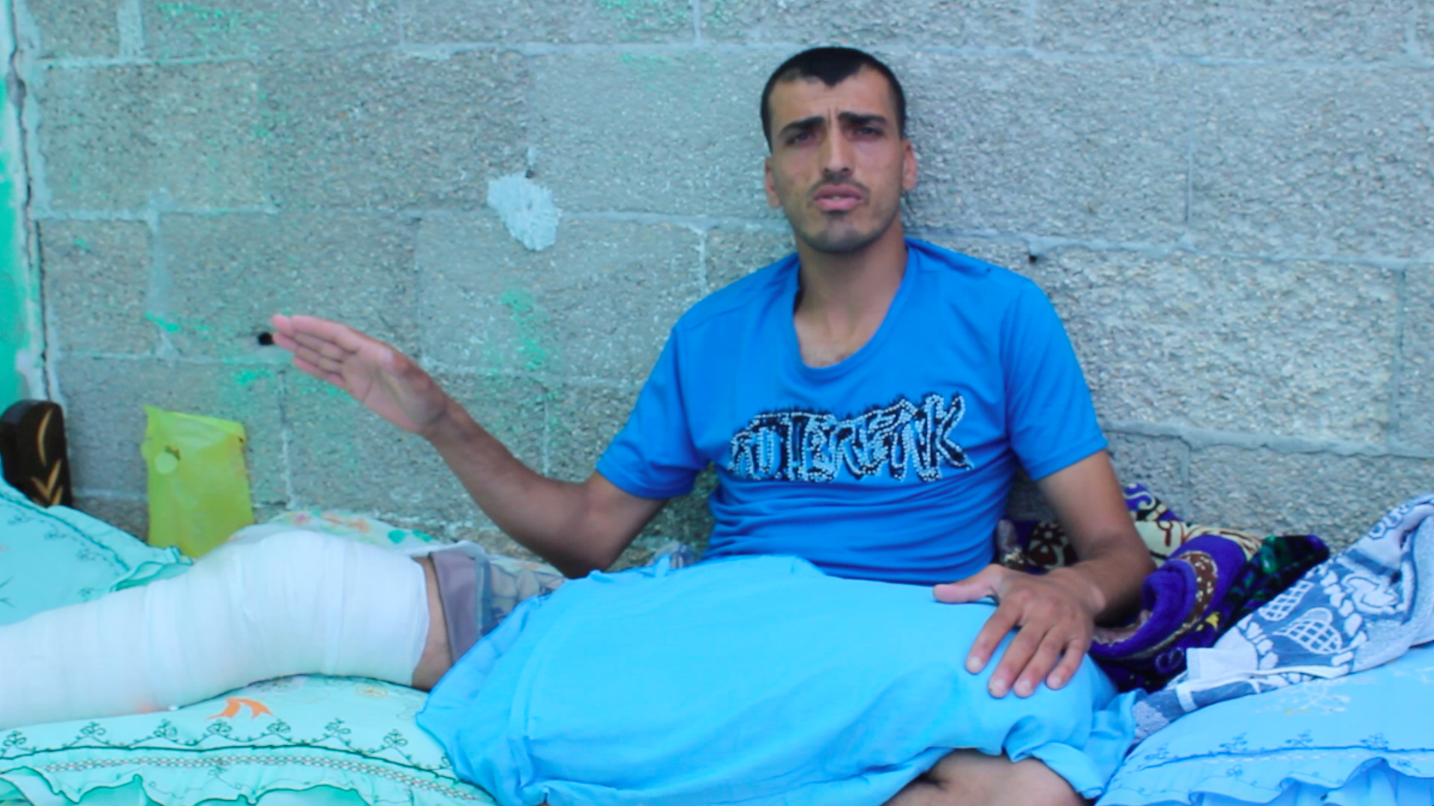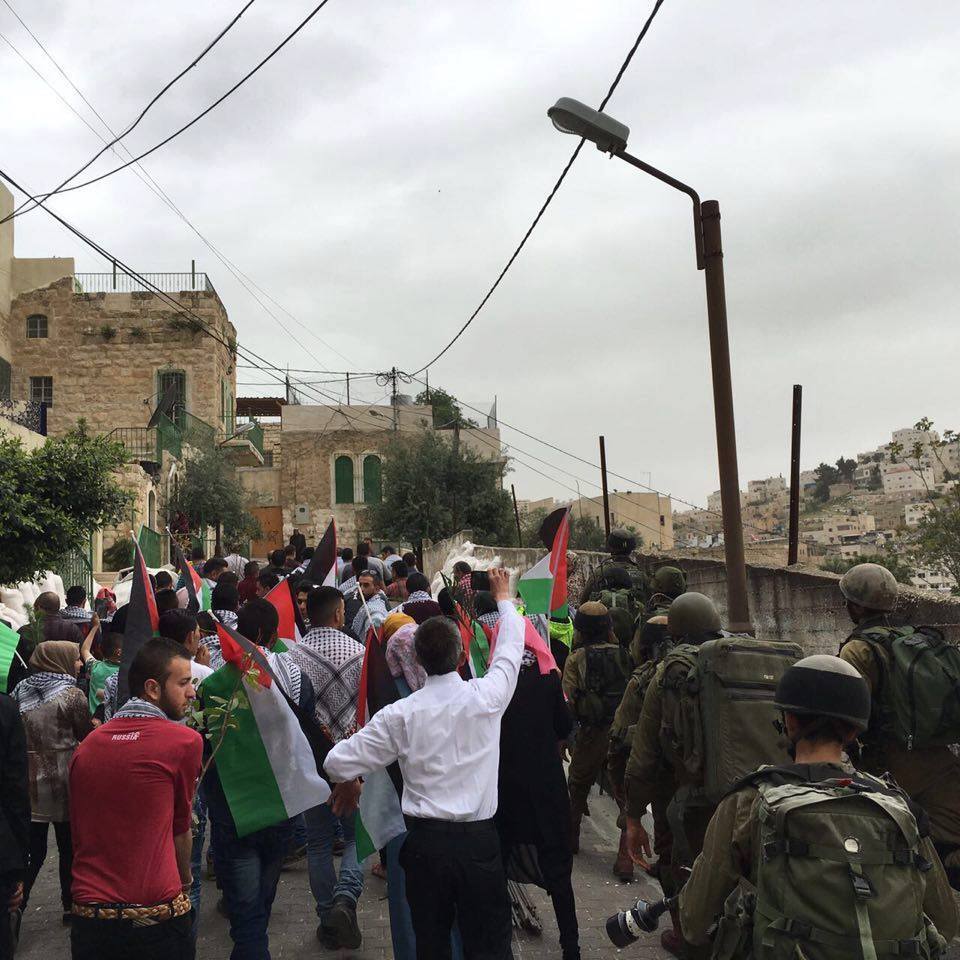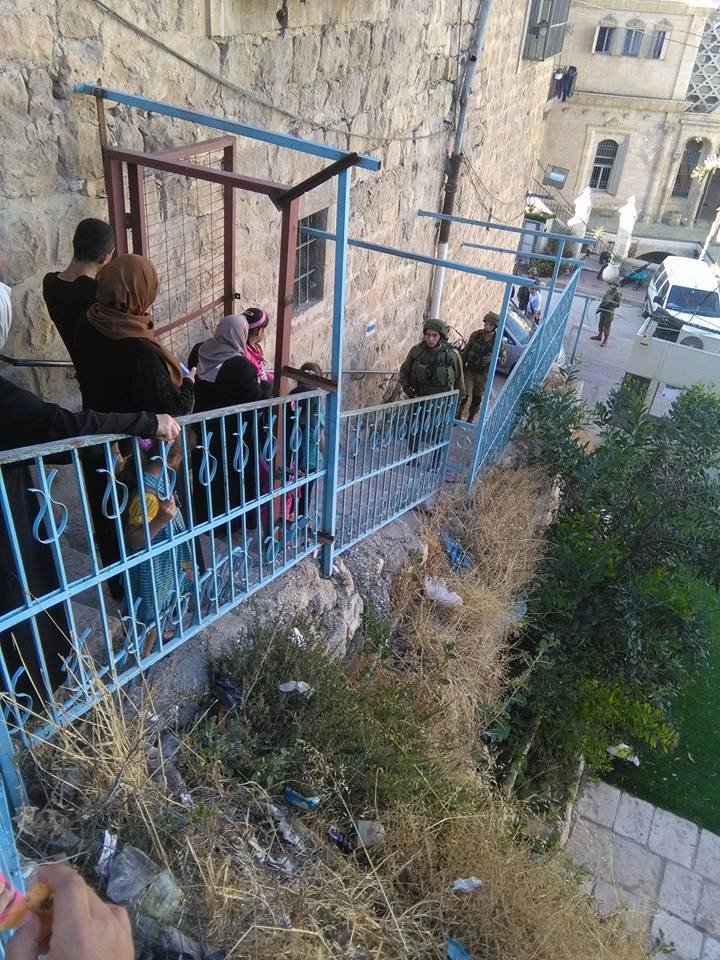Tag: International law
-

Testimony of one of the latest attacks against Gaza’s fishermen
12th June 2016 | International Solidarity Movement, Gaza-team | Gaza Strip, occupied Palestine Last Wednesday Rajab Khaled Abu Riela, 30 years old, his brother and two cousins left Gaza’s port at 12 pm. They stayed out fishing until 1:30 am. “When we started our way back to the port one Israeli warship approached, the soldiers…
-

Peaceful planting activity stopped by Israeli forces in Hebron
11th June 2016 | Youth Against Apartheid | Hebron, occupied Palestine On 9th April, Hebron Youth against Apartheid organized a planting activity in cooperation with the Colonization and Apartheid Wall Resistance Commission in the heart of Shuhada Street and Tel Rumeida neighborhood of al-Khalil (Hebron). Dozens of heavily-armed Israeli occupation forces stopped the group while…
-

Youth Against Apartheid activities against Israeli apartheid occupation of Hebron
11th June 2016 | Youth Against Apartheid | Hebron, occupied Palestine On 8th June, Hebron Youth Against Apartheid organised an activity to erase the racist Zionist occupation slogans on slaps of concrete walls and the military checkpoints within mainly the Tel Rumeida and Shuhada Street area. The slogans were replaced with slogans calling for freedom,…
